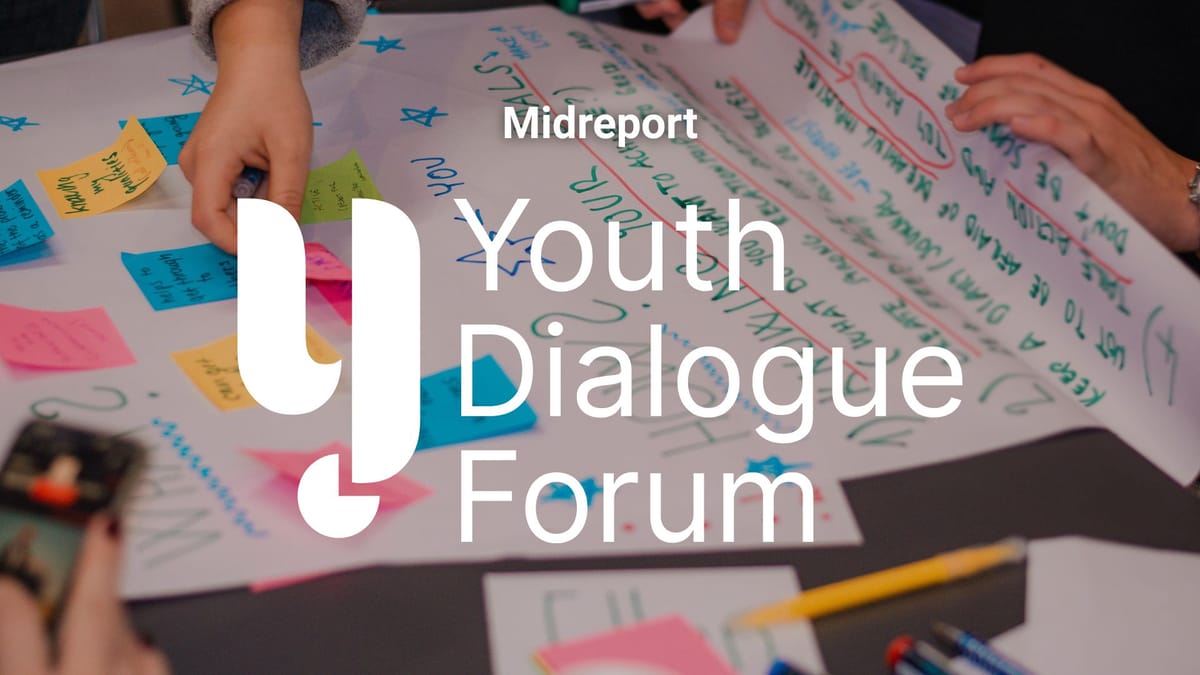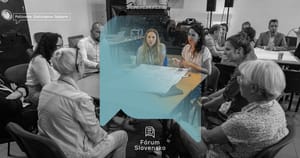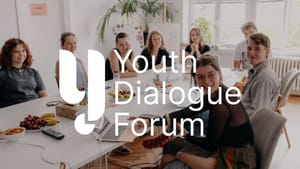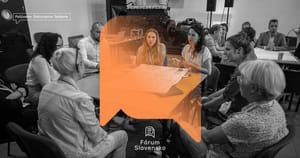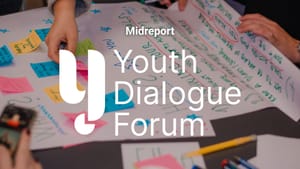Misinformation is here - in our feeds and at our tables. We agree it’s a problem. We are not sure how big, but we worry it will only grow with AI. How do we find the common truth?
Join the conversation and let’s learn from each other!
Share your experience in this unique international discussion! Vote on 35 statements and gain the chance to join us at the live forum in Kraków (23.-25.1.2026) - all costs covered. The conversation is anonymous and open till 7th of november 2025.
Recommendations for effective participation
DEMDIS discussion is an innovative method of engaging citizens in a fair and open dialogue.
- Vote on the statements of participants and add your own.
- Please be mindful of the contexts of other communities (for example, when speaking about your community, don't mention its name — we can identify it through your ambassador’s link) and speak from your own experience.
- The discussion has automated translations - feel free to add your statements in your language.
- You can find here more about the process of DEMDIS discussions and their complete methodology.
Big deal - or not?
Misinformation is a hotly debated topic, and rightly so. Some of us don’t worry too much about it. For them, it’s not a big deal day-to-day, and they might even consider the problem exaggerated compared to other issues they experience.
Yet many others say we’ve lost trust in people who used to be close - because of misinformation. Confronting friends about misleading posts, we agree, very often ends in an argument. If relationships fade and talks turn into fights, misinformation doesn’t feel like „not a big deal”.
The spread of misinformation makes some of us feel powerless. We are more careful about the conversations we join, we miss out, we minimise our voice. Sometimes it’s not a big deal, but sometimes it is.
How do you see it?
Young people as a piece of a puzzle
We’re not into the „who’s at fault” talk - we care about „who’s in the fix”. We feel that our schools should teach us to think critically, governments and big companies should keep misinformation in check. So where do we fit into all of that? How do we look for answers when we often struggle with a common truth?
We realise the fixing starts with us. Sometimes we would like to think that misinformation doesn’t happen in our communities and bubbles, but many of us say that even friends argue about made-up things because they sound true. We would like to believe we are too tech-savvy to believe misinformation, but we are worried about technology and its impact on our ability to tell truth from fiction.
But how do we make it happen if correcting misinformation already feels frustrating when minds don’t change?
No one is immune to misinformation
Misinformation weighs heavily on our countries. Sometimes the problem feels generational. Many of us feel sad when older relatives trust everything they see online. But we also think it’s risky to believe that young people are immune to misinformation. Social media algorithms keep serving us “news” without any regard for factuality. Even if we don’t follow certain profiles, we still get exposed to misinformation.
Still, most of us believe the people in out countries and communities can stand together when the crisis comes. Misinformation, we think, undermines our unity, but doesn’t destroy solidarity. Many of us feel discouraged or alone, but nothing could be further from the truth.
Misinformation in the age of AI
Many of us worry that misinformation often outruns facts, and sounds more exciting. Correction rarely works, and now AI is entering the race. Anything can be made to look real. How do we keep our wits about us?
Right now, finding the truth feels hard. Some of us have already unfollowed certain pages and profiles to cut the noise. Misinformation is splitting communities and making people suspicious of each other.
We trust there is a way forward. Whether it’s faith in our communities and human connection, robust fact checking and calling those that spread misinformation to responsibility or even new, emerging technologies, we are determined to look for solutions.
What is to be done with the results?
The results of this discussion will help us see how misinformation affects people and communities across countries. Based on this shared mapping, we’ll move to the next step: a second, solutions-oriented discussion focused on what can be done about it. The insights will also shape the framework of the live Youth Dialogue Forum in Krakow, where selected participants will meet to discuss and create specific recommendations. Each ambassador will receive both national and community-level results, showing them how their outreach network experienced and understood the issue.
More information can be found in the links bellow.
About YDF 25 | Rulebook of YDF 25 | Results of YDF 24
The project is co-financed by the governments of Czechia, Hungary, Poland and Slovakia through Visegrad Grants from the International Visegrad Fund. The mission of the fund is to advance ideas for sustainable regional cooperation in Central Europe.


